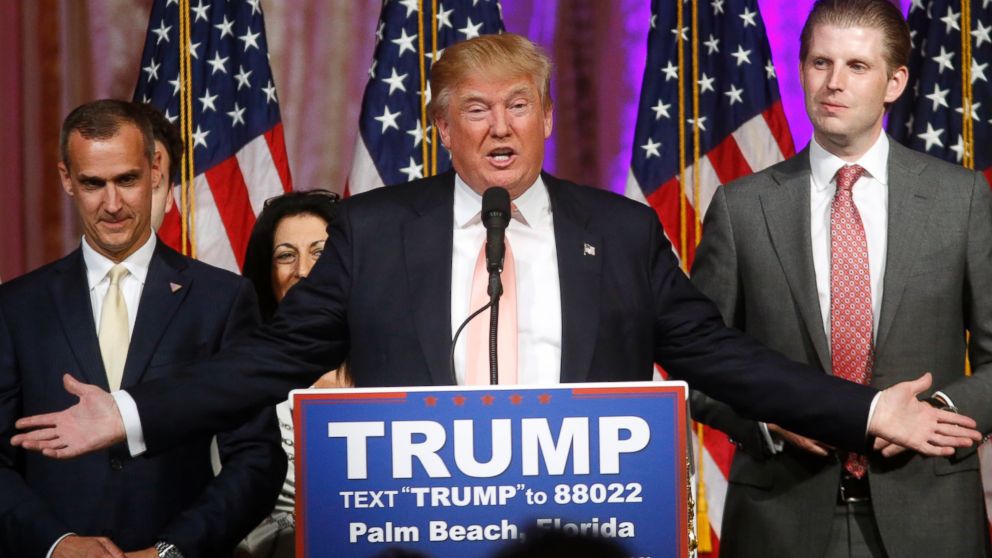ANALYSIS: Trump Rolls Through Rubio, as Cruz and Kasich Offer Narrowing Alternate Paths
— -- Ohio just might have stirred something up that can only be settled back in Ohio.
But it’s the chaos before Republicans convene this summer in Cleveland that could be working in Donald Trump’s favor until then. In the meantime, Trump’s march to the nomination continues.
Tuesday’s split decision leaves the front-runner again walking away with the biggest prize and the largest share of delegates. Trump has vanquished yet another opponent, trouncing Marco Rubio in Florida, and continuing a dominant showing across demographic groups and issue areas.
“America is in the middle of a real political storm,” Rubio said in exiting the race. “We should have seen this coming.”
As Rubio notes, the storm isn’t over. John Kasich’s first victory, not to mention Ted Cruz’s continued ability to accrue delegates, mean that Trump will have to fight for victory all the way through the spring -- and, yes, perhaps right through the Republican National Convention in July.
With fresh projected wins for Trump in Florida, Illinois and North Carolina, the central drama of the campaign is no longer whether Trump will have more delegates than his rivals when the voting ends; he will, almost certainly. The question is whether he can be denied an outright majority; the answer is, maybe.
To that point, once again, Trump’s many vulnerabilities presented themselves. Once again, they don’t seem to matter -- for now.
At the same time that Trump is taking ownership of the Republican Party, his candidacy is threatening to shred it apart. Denied by Kasich the delegates available in Ohio, Trump needs to ready himself for the real possibility of a contested convention -- or a worse fissure still.
In the five states voting Tuesday, barely half of Republicans said they’d be comfortable with Trump as the GOP nominee. Notably, nearly 60 percent of Republicans who didn’t support Trump said they would seriously consider a third-party candidate if Trump is matched up against Hillary Clinton.
The Republican race revealed its continued fluidity. Kasich won late deciders in Ohio, while Cruz won them in Missouri, and Trump held his own among that group in holding off Rubio in Florida.
Kasich and Cruz now present themselves as the final alternatives to Trump who are still actively campaigning.
The Ohio governor’s campaign is proclaiming a “whole new ballgame” and predicted an influx of cash to fuel his campaign. While Kasich is viewed far more favorably than his rivals, his problem is that half the game has effectively already been played.
Cruz offers a more complicated choice for the Republican establishment. He’s at once the only candidate in delegate-striking distance of Trump and the only candidate who is arguably more disliked than Trump by the party’s elected officials.
Rubio recognized the Trump phenomenon in leaving the race -- but to condemn it, rather than offer an embrace.
“America needs a vibrant conservative movement, but one that's built on principles and on ideas, not on fear, not on anger, not on preying on people's frustration,” he said.
The future of that movement, as well as what it’s build on, remains in question. As always, Ohio looms large.




